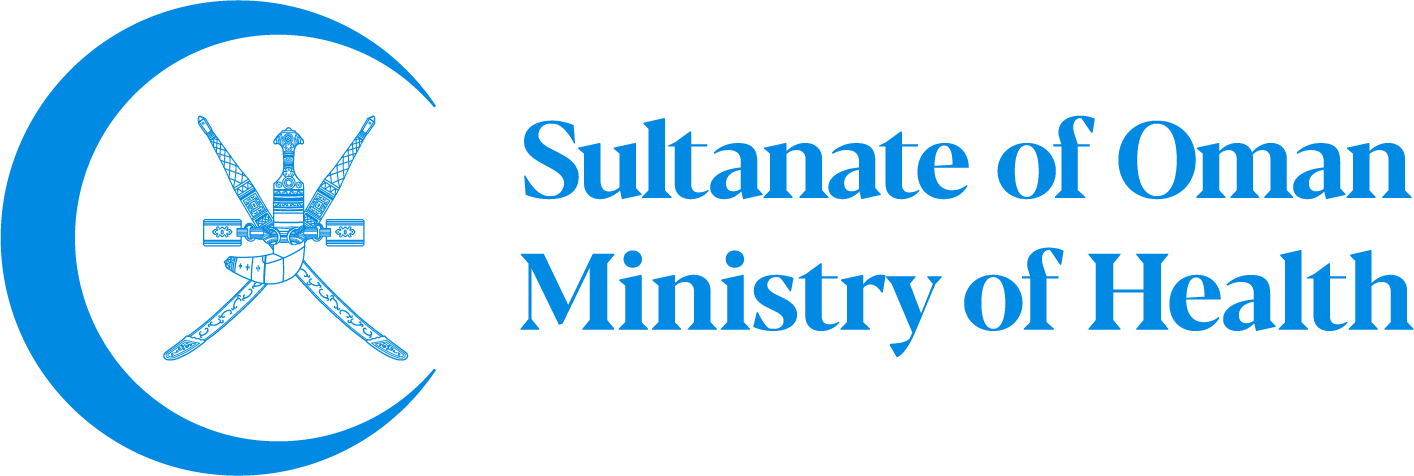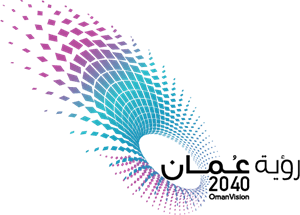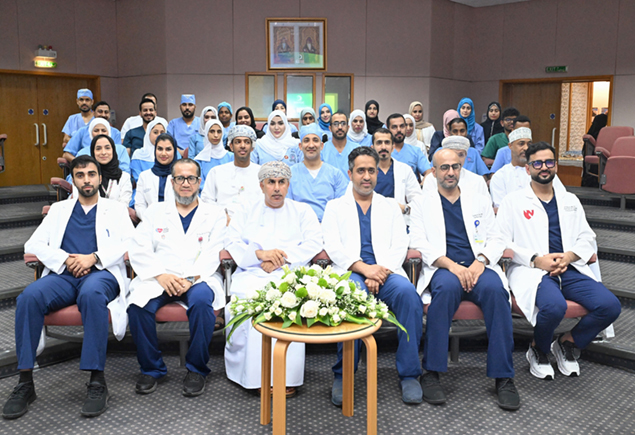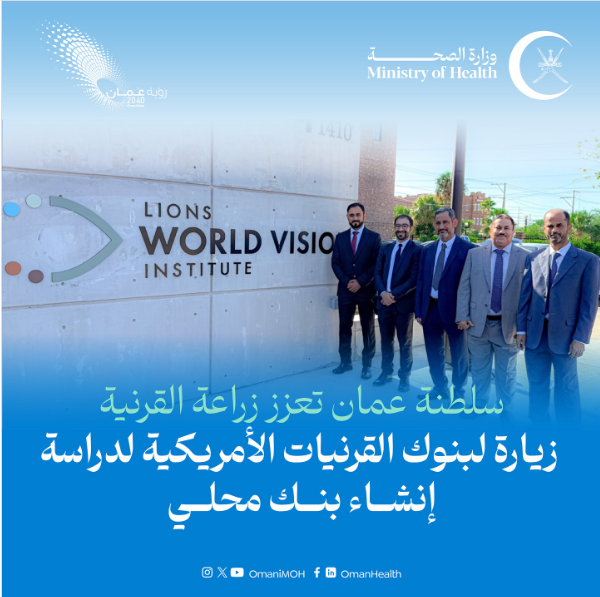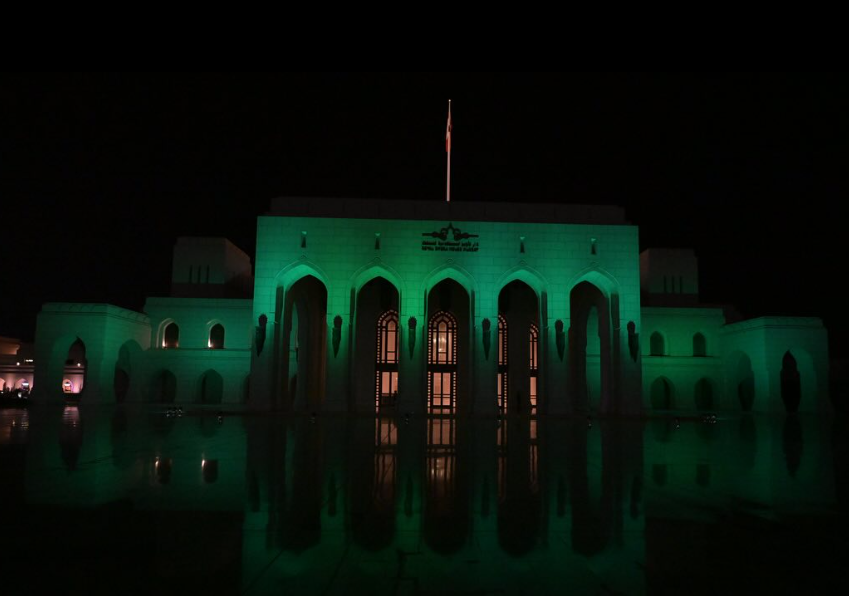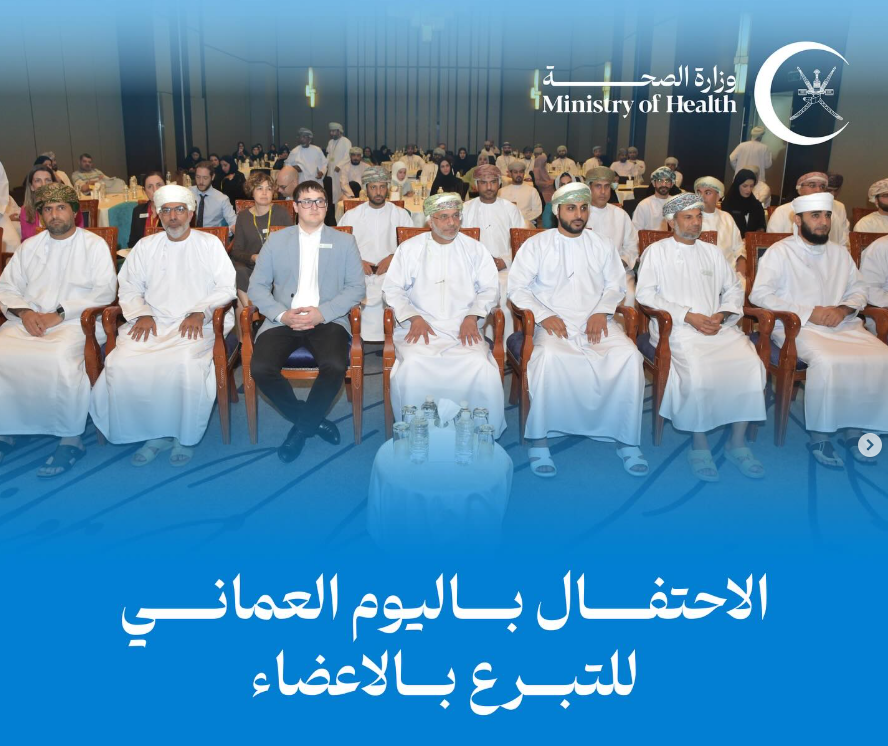
Organ Donation and Transplantation stand as pinnacle achievements within the realm of contemporary medical science, representing far more than just a medical intervention. They offer a lifeline and beacon of hope to countless individuals battling organ failure, for whom receiving a new organ is not only a matter of survival but a transformative opportunity to significantly enhance their quality of life. In January 2022, the Sultanate of Oman established the Department of National Organ Transplant Program under Ministerial Decree No. 34/2022, positioning it as a driving force behind advancements in organ donation and transplantation. This initiative underscores organ donation as an act of profound humanity and generosity, granting individuals a renewed chance at life. Echoing the noble sentiment, the Quran states, "If anyone saved a life, it would be as if they saved the life of all mankind." (Quran 5:32)
Mission
"The National Organ Transplantation Program is dedicated to improving the quality of life and mitigating the suffering of patients experiencing end-stage organ failure. It endeavors to ensure the timely provision of organs and tissues, upholding principles of fairness and equality. This encompasses the development of regulations and legislation pertaining to organ donation and transplantation, while also emphasizing the importance of research and training in this critical field"
Read MoreVision
The Sultanate of Oman aims to become a pioneer in the field of human organ and tissue donation and transplantation, adhering to international quality standards and ethical practices in medicine.
Read MoreHistory
The first kidney transplant from a living donor in the Sultanate of Oman dates back to October 1988. This was followed by the first kidney transplant from a deceased donor on December 19 of the same year. As a result, December 19 was chosen as Oman's Organ Donation Day in honor of this event. The first liver transplant from living donor in Oman was performed in October 2017 at the Royal Hospital. In November 2021, there was a royal blessing to establish the Omani Center for Organ Transplant. Consequently, the National Organ Transplant Program Department was established by Ministerial Decision No. (34) of 2022, to serve as the foundation for the Omani Center for Organ Transplant.
Read MoreServices
Services Provided
Request for organ donation for altruistic undirect
Request for organ donation for altruistic undirect
The Non-Relative Organ Donation Committee is a specialized body that works to organize and manage the donation of human organs from individuals other than relatives of patients who need these organs. These committees are formed at the level of health care institutions and are responsible for evaluating and organizing donation operations in a fair and ethical manner. https://survey.moh.gov.om/survey/index.php/121288?newtest=Y&lang=en
Read MoreRegister as an organ donor after death
Register as an organ donor after death
To express your intention to donate organs after death, you can complete the dedicated form available on the Ministry of Health's (Shifa) application. by scanning the code here.
Read MoreResearch and studies form on “Public attitudes and perceptions about organ donation in Oman”
Research and studies form on “Public attitudes and perceptions about organ donation in Oman”
What are the objectives for the study? Organ donation is a nobel humanitarian initiatives. It is defined as the donation of an organ from a person (during life or after death) to a patient who suffers from organ failure. The current study aims to assess the awareness and knowledge of the Omani society about organ donation and transplantation.
Read More
Atta Card
Atta Card
This guide represents a key step in Oman’s efforts to promote a culture of organ donation and to provide all necessary support to individuals who undertake this noble humanitarian act. By compiling and presenting comprehensive information about available services and initiatives, the guide aims to support living organ donors by offering them special services in appreciation of their humanitarian contribution. Oman’s commitment to continue working according to international standards and striving for continuous development reflects its strong will to ensure the provision of the best conditions and resources for organ donors. This guide is an expression of gratitude and appreciation for all those who contribute to this humanitarian journey, emphasizing the importance of organ donation as an integral part of the fabric of Omani society and its enduring values of giving and solidarity. Who is this guide for: Living organ donors (one kidney or a portion of the liver), both Omani citizens and residents who are considering donating in the Sultanate of Oman.
Read MoreProjects
The National Liver donation and transplantation program
The first liver transplant in the Sultanate of Oman in October 2017 at the Royal Hospital, and the first liver transplant from deceased donor on May 27, 2023. The National Technical Committee for Liver Transplantation was established as Doctors specialized in the field of liver transplantation. The establishment of this committee aims to Achieving integration, coordination, unifying protocols, exchanging knowledge, determining the mechanism for evaluating cases, etc. In January 2023, it was approved to create national waiting lists for patients with liver failure, a proactive measure aimed at providing better opportunities for patients to receive a liver transplant. The National Protocol for Liver Transplantation was issued in January 2023, and this protocol comes as a decisive step towards standardizing procedures and enhancing the effectiveness of liver transfer and transplantation operations. The protocol aims to achieve maximum safety and efficiency
The National Kidney Donation and Transplant Program
The first kidney transplant in the Sultanate of Oman from a living donor was performed in October 1988, and the first kidney transplant from a deceased donor was carried out on December 19 of the same year. The National Organ Transplantation Program aims to provide kidney transplant services, whether from living donors or deceased donors, in line with the latest international standards, protocols, and medical ethics, ensuring the safety of donations and the success of transplant operations.The National Technical Committee for Kidney Transplantation was established comprising a team of specialized kidney transplant physicians. This committee aims to enhance collaboration, standardize protocols, share expertise, and establish criteria for evaluating donation and transplant cases. A national waiting list has also been established for patients with end-stage kidney failure. This proactive step aims to increase patients' chances of obtaining an organ in a fair manner.Additionally, a national kidney transplantation protocol has been issued to standardize procedures and improve the efficiency and effectiveness of kidney donation and transplantation procedures.
The National Corneal Transplant Program
The Corneal Transplantation Program is dedicated to localizing corneal transplant services and achieving self-reliance in corneal tissue supply, utilizing a highly skilled and experienced national workforce specialized in corneal transplantation and various other eye surgeries. The Ministry of Health in Oman is committed to offering comprehensive services that enhance the Sultanate's healthcare system, aiming to reduce the necessity of sending patients abroad for such treatments, thereby saving both time and effort. Recently, efforts have been focused on identifying the essential requirements to restart the program effectively, including forming partnerships with international eye banks to secure a steady supply of corneas. This ensures the ongoing availability of corneal transplantation operations within Oman. The National Organ Transplantation Program's aim is to fully integrate the corneal transplantation service domestically by establishing a national eye bank. This bank will procure and preserve corneas from local donors, aiming for the program to be self-sufficient and to extend these critical services across all governorates of Oman in the forthcoming years.
The National Program for Organ Donation from Deceased Donors
Organ donation following brain death has the potential to save the lives of up to eight individuals suffering from organ failure, markedly enhancing their quality of life. After death, the heart, lungs, kidneys, liver, and pancreas are among the organs that can be donated. Additionally, human tissues such as corneas and heart valves can also be donated, further improving the lives of many recipients. The criteria for deceased organ donation include: Possession of a written will, although exceptions may permit organ or tissue donation from a deceased person with the consent of their legal guardian. Death must be confirmed with certainty, as outlined in the regulatory bylaws for the Transfer and Transplantation of Human Organs and Tissues. Individuals interested in registering for organ donation posthumously can utilize the Ministry of Health's 'Shifaa' application available on smartphones. By navigating to the organ donation section of the app, both citizens and residents can register as donors. It is recommended that individuals seeking to donate organs inform themselves by consulting with experts, visiting reputable websites, discussing their intention to donate with family members, addressing any questions, and completing the organ donation form found in the 'Shifaa' application.
The National Campaign for Awareness of Organ Donation
The Ministry of Health, through its National Organ Transplant Program, is diligently working to elevate awareness about the importance of organ donation, both during life and after death, emphasizing the necessity of organ availability for patients suffering from organ failure in the Sultanate of Oman. To achieve this, the National Campaign for Awareness of Organ Donation was inaugurated on December 19, 2022, aligning with the celebration of Omani Organ Donation Day. This initiative, spearheaded by the National Organ Transplant Program department, extended across all governorates of the Sultanate, with the objective of acquainting the public with the program's objectives, pertinent legislation, and suffering of individuals with organ failure. It also showcased the narratives of both organ donors and recipients to underscore the community's critical role in organ donation and introduced the process for registering as an organ donor after death through the Shifa application. One of the main aims of the campaign is to educate the community on the causes of organ failure, focusing on prevention strategies, particularly for diabetes and chronic hypertension, and offering guidance on their management. Another vital goal of the campaign is to alert the public to the perils of engaging with the black market for the purchase of human organs. It further clarifies the religious perspective on organ donation, affirming its permissibility and recognition as an act of ongoing charity, both during one's lifetime and after death. The campaign seeks to establish a vibrant collaboration with various related sectors to bolster support for patients with organ failure, living donors, and the families of deceased donors. A key component of the campaign involves expert explanations on brain death, aimed at dispelling misconceptions surrounding organ transplantation and donation. The campaign reached across all governorates, facilitating direct engagements with health officials, healthcare workers, dialysis centers, and intensive care professionals. It featured educational lectures on the inaugural day to introduce the National Organ Transplant Program. A symposium followed the next day, emphasizing the significance of organ donation, engaging a wide audience that included the governor, distinguished officials, and local leaders of each governorate.
The Project of law draft to Regulate the Transfer and Transplantation of Human Organs and Tissues
Working on drafting a law to regulate the transfer and transplantation of human organs and tissues is considered a vital step in enhancing healthcare. This type of legislation contributes to creating a more transparent and safer environment for donation and transplantation processes. The law sets the general frameworks for organ donation and the rights of donors, which helps in facilitating the procedures of organ transplantation for patients with organ failure and enhances the safety of donation by defining the necessary procedures and standards to ensure the quality and success of transplantation operations. Furthermore, the law reflects concern for ethical and social issues, as it is aligned with the state's fundamental legal system.
The launch of the "ATTA Card" project
We are proud to announce the launch of the "ATTA Card" project, a distinctive initiative aimed at honoring and appreciating organ donors who have offered the gift of life to others. In a world where we face increasing health challenges, the "ATTA Card" project seeks to enhance the culture of organ donation and encourage more individuals to become part of this noble humanitarian movement. Objectives: Acknowledgment of Organ Donors: By providing the privileges of the ATTA Card, we wish to express our gratitude and appreciation to the donors who have shown the highest forms of humanity. Encouragement of Organ Donation: Through this card, we strive to encourage more people to consider organ donation and to sign up for donor cards. Awareness Raising: Launching awareness campaigns alongside the project aimed at increasing awareness of the importance of organ donation and the positive impact it can have on the lives of others. Benefits of the ATTA Card Privileges: Discounts and Offers: The card offers a range of discounts and special offers in various government and private sectors. Recognition and Honor: The card serves as a symbol of recognition and appreciation for the valuable contribution of donors in saving others' lives. How to Obtain the Card: All organ donors will receive a ATTA Card, after the review of records and issuance of the cards. We believe that every individual has the capacity to make a difference in the lives of others. With the "ATTA Card," we want to celebrate those who have chosen to be lifesavers and encourage everyone to consider taking this noble step.
Future Projects
The National Heart transplant program The National Lung transplant program Human Tissue Bank
Organ sharing project between countries
The Organ Sharing Program between the Sultanate of Oman and the Gulf Cooperation Council (GCC) Countries addresses the critical need for organ transplants, a life-saving medical intervention for patients with organ failure. The global shortage of donated organs is acute, with donations meeting less than 10% of the overall transplantation needs. To mitigate this shortfall, the Organ Sharing Program has been established to enhance the utilization of donated organs across the Sultanate of Oman and the GCC countries. This initiative aims to bolster the availability of organs for transplantation by promoting cooperation in medical and logistical facets of organ donation and transplantation among GCC nations. Oman has spearheaded the effort by proposing a model agreement for organ sharing, donation, and transplantation collaboration among GCC countries. This proposal was introduced to the members of the Gulf Committee for Organ Donation and Transplantation at their meeting in Dubai, United Arab Emirates, on January 28, 2024. The model agreement received unanimous approval, with its adoption being voluntary for each participating nation. It is designed to act as a foundational framework, encouraging the development of bilateral agreements between countries to facilitate organ exchange, donation, and transplantation more efficiently.
About Us
Last updated on : 04 May 2025 - 12:57 PM
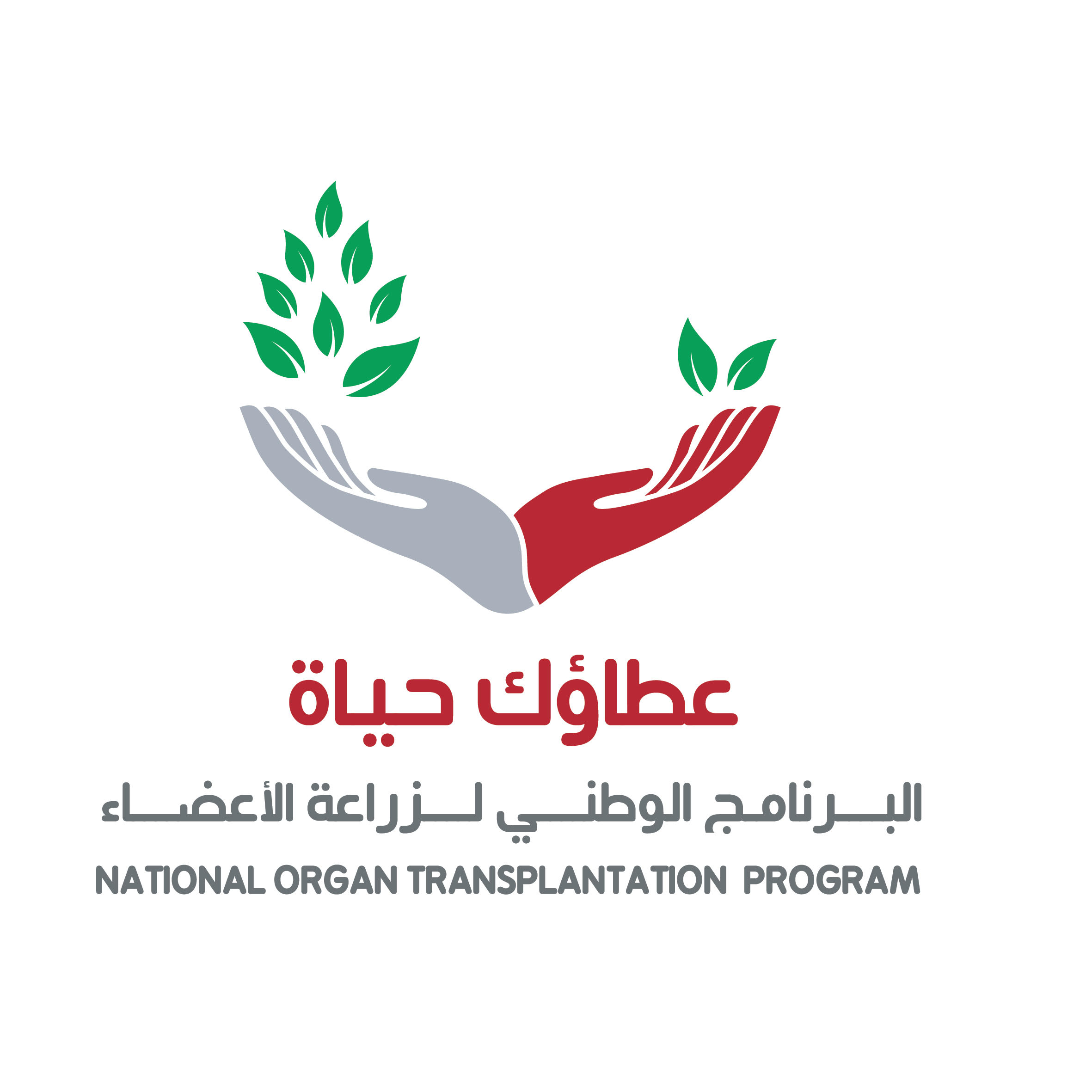
Mission
"The National Organ Transplantation Program is dedicated to improving the quality of life and mitigating the suffering of patients experiencing end-stage organ failure. It endeavors to ensure the timely provision of organs and tissues, upholding principles of fairness and equality. This encompasses the development of regulations and legislation pertaining to organ donation and transplantation, while also emphasizing the importance of research and training in this critical field"
Read MoreVision
The Sultanate of Oman aims to become a pioneer in the field of human organ and tissue donation and transplantation, adhering to international quality standards and ethical practices in medicine.
Read MoreHistory
The first kidney transplant from a living donor in the Sultanate of Oman dates back to October 1988. This was followed by the first kidney transplant from a deceased donor on December 19 of the same year. As a result, December 19 was chosen as Oman's Organ Donation Day in honor of this event. The first liver transplant from living donor in Oman was performed in October 2017 at the Royal Hospital. In November 2021, there was a royal blessing to establish the Omani Center for Organ Transplant. Consequently, the National Organ Transplant Program Department was established by Ministerial Decision No. (34) of 2022, to serve as the foundation for the Omani Center for Organ Transplant.
Read MoreNews
Ongoing Projects
The National Liver donation and transplantation program
The first liver transplant in the Sultanate of Oman in October 2017 at the Royal Hospital, and the first liver transplant from deceased donor on May 27, 2023. The National Technical Committee for Liver Transplantation was established as Doctors specialized in the field of liver transplantation. The establishment of this committee aims to Achieving integration, coordination, unifying protocols, exchanging knowledge, determining the mechanism for evaluating cases, etc. In January 2023, it was approved to create national waiting lists for patients with liver failure, a proactive measure aimed at providing better opportunities for patients to receive a liver transplant. The National Protocol for Liver Transplantation was issued in January 2023, and this protocol comes as a decisive step towards standardizing procedures and enhancing the effectiveness of liver transfer and transplantation operations. The protocol aims to achieve maximum safety and efficiency
The National Kidney Donation and Transplant Program
The first kidney transplant in the Sultanate of Oman from a living donor was performed in October 1988, and the first kidney transplant from a deceased donor was carried out on December 19 of the same year. The National Organ Transplantation Program aims to provide kidney transplant services, whether from living donors or deceased donors, in line with the latest international standards, protocols, and medical ethics, ensuring the safety of donations and the success of transplant operations.The National Technical Committee for Kidney Transplantation was established comprising a team of specialized kidney transplant physicians. This committee aims to enhance collaboration, standardize protocols, share expertise, and establish criteria for evaluating donation and transplant cases. A national waiting list has also been established for patients with end-stage kidney failure. This proactive step aims to increase patients' chances of obtaining an organ in a fair manner.Additionally, a national kidney transplantation protocol has been issued to standardize procedures and improve the efficiency and effectiveness of kidney donation and transplantation procedures.
The National Corneal Transplant Program
The Corneal Transplantation Program is dedicated to localizing corneal transplant services and achieving self-reliance in corneal tissue supply, utilizing a highly skilled and experienced national workforce specialized in corneal transplantation and various other eye surgeries. The Ministry of Health in Oman is committed to offering comprehensive services that enhance the Sultanate's healthcare system, aiming to reduce the necessity of sending patients abroad for such treatments, thereby saving both time and effort. Recently, efforts have been focused on identifying the essential requirements to restart the program effectively, including forming partnerships with international eye banks to secure a steady supply of corneas. This ensures the ongoing availability of corneal transplantation operations within Oman. The National Organ Transplantation Program's aim is to fully integrate the corneal transplantation service domestically by establishing a national eye bank. This bank will procure and preserve corneas from local donors, aiming for the program to be self-sufficient and to extend these critical services across all governorates of Oman in the forthcoming years.
The National Program for Organ Donation from Deceased Donors
Organ donation following brain death has the potential to save the lives of up to eight individuals suffering from organ failure, markedly enhancing their quality of life. After death, the heart, lungs, kidneys, liver, and pancreas are among the organs that can be donated. Additionally, human tissues such as corneas and heart valves can also be donated, further improving the lives of many recipients. The criteria for deceased organ donation include: Possession of a written will, although exceptions may permit organ or tissue donation from a deceased person with the consent of their legal guardian. Death must be confirmed with certainty, as outlined in the regulatory bylaws for the Transfer and Transplantation of Human Organs and Tissues. Individuals interested in registering for organ donation posthumously can utilize the Ministry of Health's 'Shifaa' application available on smartphones. By navigating to the organ donation section of the app, both citizens and residents can register as donors. It is recommended that individuals seeking to donate organs inform themselves by consulting with experts, visiting reputable websites, discussing their intention to donate with family members, addressing any questions, and completing the organ donation form found in the 'Shifaa' application.
The National Campaign for Awareness of Organ Donation
The Ministry of Health, through its National Organ Transplant Program, is diligently working to elevate awareness about the importance of organ donation, both during life and after death, emphasizing the necessity of organ availability for patients suffering from organ failure in the Sultanate of Oman. To achieve this, the National Campaign for Awareness of Organ Donation was inaugurated on December 19, 2022, aligning with the celebration of Omani Organ Donation Day. This initiative, spearheaded by the National Organ Transplant Program department, extended across all governorates of the Sultanate, with the objective of acquainting the public with the program's objectives, pertinent legislation, and suffering of individuals with organ failure. It also showcased the narratives of both organ donors and recipients to underscore the community's critical role in organ donation and introduced the process for registering as an organ donor after death through the Shifa application. One of the main aims of the campaign is to educate the community on the causes of organ failure, focusing on prevention strategies, particularly for diabetes and chronic hypertension, and offering guidance on their management. Another vital goal of the campaign is to alert the public to the perils of engaging with the black market for the purchase of human organs. It further clarifies the religious perspective on organ donation, affirming its permissibility and recognition as an act of ongoing charity, both during one's lifetime and after death. The campaign seeks to establish a vibrant collaboration with various related sectors to bolster support for patients with organ failure, living donors, and the families of deceased donors. A key component of the campaign involves expert explanations on brain death, aimed at dispelling misconceptions surrounding organ transplantation and donation. The campaign reached across all governorates, facilitating direct engagements with health officials, healthcare workers, dialysis centers, and intensive care professionals. It featured educational lectures on the inaugural day to introduce the National Organ Transplant Program. A symposium followed the next day, emphasizing the significance of organ donation, engaging a wide audience that included the governor, distinguished officials, and local leaders of each governorate.
The Project of law draft to Regulate the Transfer and Transplantation of Human Organs and Tissues
Working on drafting a law to regulate the transfer and transplantation of human organs and tissues is considered a vital step in enhancing healthcare. This type of legislation contributes to creating a more transparent and safer environment for donation and transplantation processes. The law sets the general frameworks for organ donation and the rights of donors, which helps in facilitating the procedures of organ transplantation for patients with organ failure and enhances the safety of donation by defining the necessary procedures and standards to ensure the quality and success of transplantation operations. Furthermore, the law reflects concern for ethical and social issues, as it is aligned with the state's fundamental legal system.
The launch of the "ATTA Card" project
We are proud to announce the launch of the "ATTA Card" project, a distinctive initiative aimed at honoring and appreciating organ donors who have offered the gift of life to others. In a world where we face increasing health challenges, the "ATTA Card" project seeks to enhance the culture of organ donation and encourage more individuals to become part of this noble humanitarian movement. Objectives: Acknowledgment of Organ Donors: By providing the privileges of the ATTA Card, we wish to express our gratitude and appreciation to the donors who have shown the highest forms of humanity. Encouragement of Organ Donation: Through this card, we strive to encourage more people to consider organ donation and to sign up for donor cards. Awareness Raising: Launching awareness campaigns alongside the project aimed at increasing awareness of the importance of organ donation and the positive impact it can have on the lives of others. Benefits of the ATTA Card Privileges: Discounts and Offers: The card offers a range of discounts and special offers in various government and private sectors. Recognition and Honor: The card serves as a symbol of recognition and appreciation for the valuable contribution of donors in saving others' lives. How to Obtain the Card: All organ donors will receive a ATTA Card, after the review of records and issuance of the cards. We believe that every individual has the capacity to make a difference in the lives of others. With the "ATTA Card," we want to celebrate those who have chosen to be lifesavers and encourage everyone to consider taking this noble step.
Future Projects
Future Projects
The National Heart transplant program The National Lung transplant program Human Tissue Bank
Organ sharing project between countries
The Organ Sharing Program between the Sultanate of Oman and the Gulf Cooperation Council (GCC) Countries addresses the critical need for organ transplants, a life-saving medical intervention for patients with organ failure. The global shortage of donated organs is acute, with donations meeting less than 10% of the overall transplantation needs. To mitigate this shortfall, the Organ Sharing Program has been established to enhance the utilization of donated organs across the Sultanate of Oman and the GCC countries. This initiative aims to bolster the availability of organs for transplantation by promoting cooperation in medical and logistical facets of organ donation and transplantation among GCC nations. Oman has spearheaded the effort by proposing a model agreement for organ sharing, donation, and transplantation collaboration among GCC countries. This proposal was introduced to the members of the Gulf Committee for Organ Donation and Transplantation at their meeting in Dubai, United Arab Emirates, on January 28, 2024. The model agreement received unanimous approval, with its adoption being voluntary for each participating nation. It is designed to act as a foundational framework, encouraging the development of bilateral agreements between countries to facilitate organ exchange, donation, and transplantation more efficiently.
Services List
Request for organ donation for altruistic undirect
Request for organ donation for altruistic undirect
The Non-Relative Organ Donation Committee is a specialized body that works to organize and manage the donation of human organs from individuals other than relatives of patients who need these organs. These committees are formed at the level of health care institutions and are responsible for evaluating and organizing donation operations in a fair and ethical manner. https://survey.moh.gov.om/survey/index.php/121288?newtest=Y&lang=en
Read MoreRegister as an organ donor after death
Register as an organ donor after death
To express your intention to donate organs after death, you can complete the dedicated form available on the Ministry of Health's (Shifa) application. by scanning the code here.
Read MoreResearch and studies form on “Public attitudes and perceptions about organ donation in Oman”
Research and studies form on “Public attitudes and perceptions about organ donation in Oman”
What are the objectives for the study? Organ donation is a nobel humanitarian initiatives. It is defined as the donation of an organ from a person (during life or after death) to a patient who suffers from organ failure. The current study aims to assess the awareness and knowledge of the Omani society about organ donation and transplantation.
Read More
Atta Card
Atta Card
This guide represents a key step in Oman’s efforts to promote a culture of organ donation and to provide all necessary support to individuals who undertake this noble humanitarian act. By compiling and presenting comprehensive information about available services and initiatives, the guide aims to support living organ donors by offering them special services in appreciation of their humanitarian contribution. Oman’s commitment to continue working according to international standards and striving for continuous development reflects its strong will to ensure the provision of the best conditions and resources for organ donors. This guide is an expression of gratitude and appreciation for all those who contribute to this humanitarian journey, emphasizing the importance of organ donation as an integral part of the fabric of Omani society and its enduring values of giving and solidarity. Who is this guide for: Living organ donors (one kidney or a portion of the liver), both Omani citizens and residents who are considering donating in the Sultanate of Oman.
Read MoreContent Resources
No Information Available At The Moment
Atta Card
This guide represents a key step in Oman’s efforts to promote a culture of organ donation and to provide all necessary support to individuals who undertake this noble humanitarian act. By compiling and presenting comprehensive information about available services and initiatives, the guide aims to support living organ donors by offering them special services in appreciation of their humanitarian contribution. Oman’s commitment to continue working according to international standards and striving for continuous development reflects its strong will to ensure the provision of the best conditions and resources for organ donors. This guide is an expression of gratitude and appreciation for all those who contribute to this humanitarian journey, emphasizing the importance of organ donation as an integral part of the fabric of Omani society and its enduring values of giving and solidarity. Who is this guide for: Living organ donors (one kidney or a portion of the liver), both Omani citizens and residents who are considering donating in the Sultanate of Oman.
The National Organ Transplant Program invites you to join as partners in providing sustainable services and facilities for organ donors during life and providing all necessary support to people who undertake this great humanitarian act and an incentive to promote the culture of organ donation in the Sultanate of Oman.
